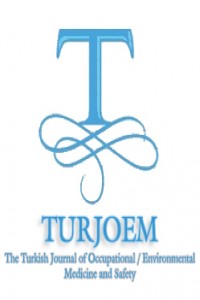ASSESSMENT OF SELECTIVITY OF A SERIAL 1,4-BENZOXAZINE-3-ONE DERIVATIVES INDUCED OXIDATIVE DNA DAMAGE ON CANCER CELLS USING THE MODIFIED ALKALINE COMET ASSAY
Abstract
It is important
that anticancer agents affect selectively cancer cells to minimize possible
side effects of therapy. It is reported that cancer cells may be more sensitive
to ROS generated DNA damage than normal cells. So it is supposed that increased
oxidative stress by exogenous ROS generation therapy has an effect on
selectively killing cancer cells with little or no toxicity on normal cells. We
evaluated selective genotoxic and ROS generating activities of a serial 1,4-
benzoxazine-3-one derivatives previously synthesized and assessed in vitro
anticancer and human topoisomerase I inhibitory activities.
In this present
study, we evaluated their potentials of generating DNA strand breaks and
oxidative DNA damage on cancer (HeLa) and normal (L929) cells with alkaline and
modified comet assay, respectively. Cells treated with various non-cytotoxic
doses of the test compounds. Following test procedures, slides were scored by
comet assay IV analysis program. For modified comet assay, slides were
incubated with damage specific DNA glycosylases (Fpg and Endo III) before
electrophoresis. Tail moment results were statistically analyzed.
Test results
showed that BS1, BS4, BS10, BS11 caused DNA strand breaks on HeLa, but not on
L929. Fpg and Endo III-sensitive sites were both higher in cells treated with
BS1 and BS4, whereas BS10 and BS11 increased only frequency of Fpg-sensitive
sites.
This present
study revealed that BS1, BS4, BS10 and BS11 exhibited selectively genotoxic and
ROS generating activity on HeLa cells. Further mechanistic studies as well as
in vivo studies with these compounds have planned in a new project.
References
- Egemen FOTO, Fatma ZİLİFDAR, Serap YİLMAZ, Ismail YALCİN, Nuran DİRİL
- Molecular Biology Department, Faculty of Science, Hacettepe University, Beytepe, Ankara, Turkey Pharmaceutical Chemistry Dept Faculty of Pharmacy, Ankara University, Tandogan, Ankara, Turkey
Abstract
References
- Egemen FOTO, Fatma ZİLİFDAR, Serap YİLMAZ, Ismail YALCİN, Nuran DİRİL
- Molecular Biology Department, Faculty of Science, Hacettepe University, Beytepe, Ankara, Turkey Pharmaceutical Chemistry Dept Faculty of Pharmacy, Ankara University, Tandogan, Ankara, Turkey
Details
| Journal Section | Articles |
|---|---|
| Authors | |
| Publication Date | February 16, 2017 |
| Published in Issue | Year 2017 Volume: Volume 2 Issue: İssue 1 (1) - 2.İnternational Congress Of Forensic Toxicology |

